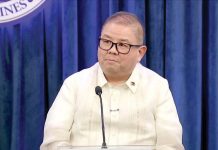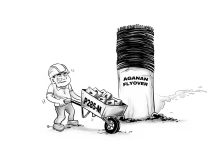
THE HOPE and dream of the late pope Francis was to reform the Catholic Church and make it a synodal church at every level, where everyone — laypeople, priests and bishops — are considered equal before God and Jesus of Nazareth, working together, sharing thoughts, listening and learning from one another, and participating humbly in proclaiming the vision and values of the Gospel through action.
This same hope and dream are also what motivates Francis’ successor, Pope Leo XIV. It’s a call for bishops and priests to be humble “washers of feet” and support child victims of clerical abuse, not with more words, but with action toward justice.
Francis began a synodal movement to restore the spirit of the early Church as Jesus began it: a spiritual and social movement with a mission to act on behalf of the poor and downtrodden. Those in the early Church lived the great values of truth, honesty, equality, justice, sharing, loving their neighbor, and believing they would transform society. Their shared mission was to do good, proclaim the truth, and oppose evil with determination and a commitment to justice.
Francis’ vision was to challenge conservative clerics who covered up child abuse by priests and who favored more the ruling elites and their goals, rather than being in solidarity with the poor and the oppressed, as Jesus was.
On Jan. 31, 2025, Cardinal Pablo Virgilio David, following an international summit on the clerical abuse of children held at the University of the Philippines Diliman, said Filipinos should bring clerical perpetrators of child abuse to the civil authorities and win justice for the victims. This would be implementing the synodality that Francis had taught.
“We welcome initiatives intended to hold people in whatever form of authority accountable, including the Church. This is part of the pope’s call for a more synodal Church. The Church, being a human institution, is not exempt from sin and corruption,” Cardinal David said. “Please don’t hesitate to file complaints against abusive clerics, whether in the civil or Church forums.”
This is a new policy and direction: Civilians should not only report clerical abuse to police but also immediately file cases — with the help of prosecutors — against those committing them. This is a welcome departure from the denial and cover-up of the criminal activities of priests and the “sin and corruption” of some bishops in the past. A win for synodality and for Francis.
“Of course, we’re not always successful in this regard and we need the help and participation of our laypeople, including our professional journalists who are our allies in the quest for truth and fact-checking and the battle against disinformation,” Cardinal David said. This is also the common action of synodality.
The people of God are encouraged to defend the rights of abused children and fight for justice, especially in holding accused priests to account. Bishops should do the same, but some of them even protect these alleged abusers and can even pressure prosecutors and judges to dismiss the cases against them.
Here is a link to the names of priests in the database of 83 credibly accused or convicted priests in the Philippines, provided by BishopAccountability: https://www.bishop-accountability.org/philippine-database/. These are also posted on the Preda Foundation website: https://preda.org/82-clerics-with-philippine-ties-accused-of-child-sexual-abuse/. (To be continued)/PN







